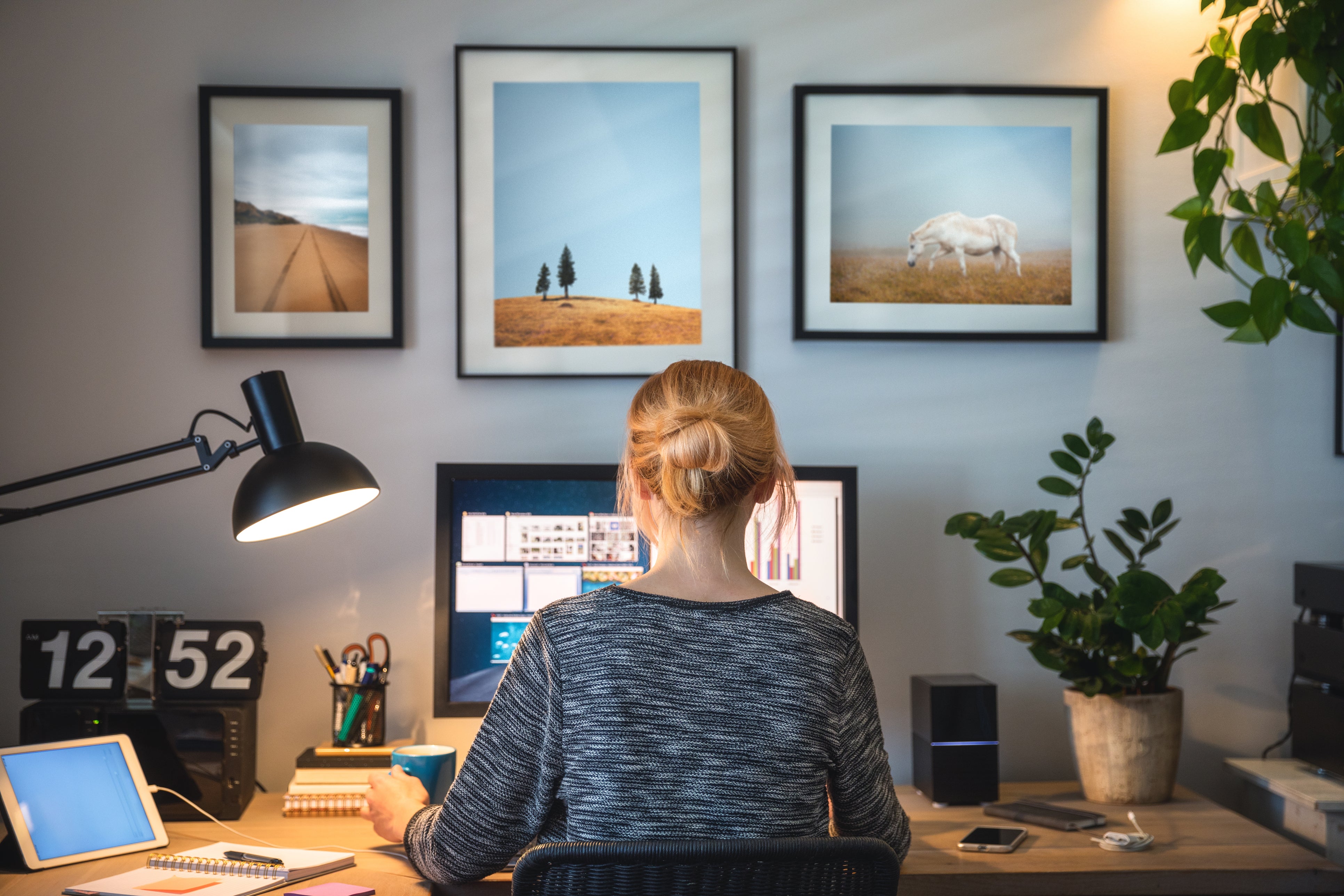Virtual fatigue: Why the government is looking at how the internet is affecting our mental health
Global online usage has rocketed since the beginning of the pandemic, but at what cost to our mental health? Joanna Whitehead looks at a new government inquiry established at finding out


The Covid-19 pandemic has rapidly accelerated our reliance on digital technology. New research published in September revealed that global online consumption has more than doubled during 2020. Prior to the arrival of Covid-19, the average time a person spent online per day was just over three hours, but the study of over 10,000 people in five countries has found this number has increased to six hours and 59 minutes, a figure which includes phone, TV and other forms of digital media.
Next week, a House of Lords committee will consider evidence from two panels of witnesses, including members of the Royal College of Psychiatrists and the British Psychological Society, into the impact of spending more time online on our mental health.
This includes the extent to which mental health services may be delivered digitally, what influence this may have on mental health outcomes, and the overall impact of people’s future mental health of spending more time online.
The inquiry, chaired by Baroness Lane-Fox, will investigate the long-term impact of this on four drivers of wellbeing: physical health, mental health, social interaction and quality of working life.
It’s an issue that affects us all. Figures published by the Office for National Statistics show that in January and February this year, 96 per cent of households in Great Britain had internet access.
People in the UK check their smartphones, on average, every 12 minutes
And research published by Ofcom in 2018 revealed that people in the UK check their smartphones, on average, every 12 minutes of the working day, with two in five adults looking at their phone within five minutes of waking up.
The government body also found in a study of over 2,000 people in the UK earlier this year that 86 per cent of adults polled reported concerns about being online.
While the biggest concern related to children’s exposure to bullying, abusive behaviour or threats, this also included worries about personal information being stolen, scams and frauds and data being processed without consent.
Ian Macrae, Ofcom’s Director of Market Intelligence, said: “Over the last decade, people’s lives have been transformed by the rise of the smartphone, together with better access to the internet and new services.
“Whether it’s working flexibly, keeping up with current affairs or shopping online, we can do more on the move than ever before.
“But while people appreciate their smartphone as their constant companion, some are finding themselves feeling overloaded when online, or frustrated when they’re not.”
Emma Robertson, co-founder of digital wellbeing agency Digital Awareness UK (DAUK), told The Independent that they had spoken with thousands of people since the start of the pandemic.
“We’ve seen a marked improvement in the ways in which young people are navigating the online world - particularly when it comes to spotting scams, misinformation and online predators,” she said.
The fact that we’re hyper connected, however, has meant all the [online] issues we were seeing pre-pandemic have exacerbated
“This is largely because we have been forced to look at digital information through a critical lens with such an influx of COVID scams, fake news etc. being pushed our way.”
She added: "The fact that we’re hyper connected, however, has meant all the issues we were seeing pre-pandemic have exacerbated. Online bullying, grooming, sexting, and exposure to inappropriate content have all increased.
“Now, more than ever, it is critical that people have the skills to navigate the digital world safely and responsibly.”
The government inquiry will also explore whether there are sufficient safeguards in place to protect the mental health of vulnerable internet users and, in particular, children and young people. The committee will consider the role that Government can/should play in promoting “mentally healthy” internet use.
In their 2019 report Left to their own devices, children’s charity Barnado’s found that half of the 80 practitioners consulted for the study said that half of them had worked with children who had been exposed to unsuitable or harmful material online, while more than one third said children in that age group had been victims of cyberbullying.
And 79 per cent of those working with 11-15-year-olds said that children they had worked with had experienced cyberbullying, while 78 per cent had been groomed online.
Baroness Lane-Fox said: “Over the course of the year as a result of the pandemic, the increasing use of technology has permeated every aspect of our lives including digital delivery of physical and mental health services and longer periods of time spent online in general.
“The upcoming evidence session will consider the impact that increasing digitisation may have on our future mental health and how Government and others should respond and we look forward to hearing from our witnesses.”
The sessions will take place virtually from 10am on Tuesday 15 December and will be streamed live on Parliament TV.


Join our commenting forum
Join thought-provoking conversations, follow other Independent readers and see their replies
Comments